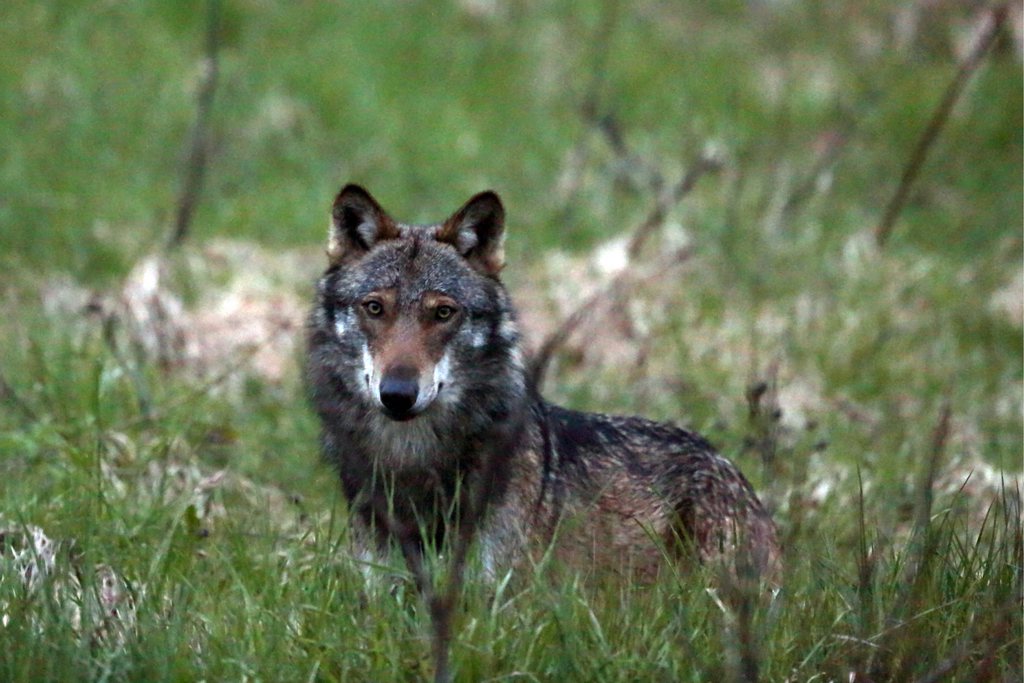Swiss Nature versus American Wilderness
Why are the Swiss so fascinated with one bear roaming Graubünden? Why are the Swiss so fascinated by the appearance of a wolf or lynx in the countryside?
While these may seem superficial questions, the answers reflect fundamental attitudes toward nature as well as subtle differences with the Sister Republic, the United States.
The role of nature in Switzerland is obvious. From small, public garden patches outside metropolitan areas to weekend and holiday retreats in the mountains, the Swiss adore being in nature. Romantic poets and artists throughout Swiss history have written about and painted the virtues of being in the state of nature. Jean-Jacques Rousseau, after all, was born in Geneva.
Daniel Warner
Daniel Warner is Assistant Director for International Relations at DCAF, the Geneva Centre for the Democratic Control of Armed Forces. He joined DCAF in 2011 after a long career at the Graduate Institute in Geneva.
But the paradox of Swiss pastoralism is that whereas the virtues of nature are extolled, there are limits; not in the extolling of nature, but in the essence of nature itself. As my mother once observed, Switzerland has “civilized nature”. Americans can appreciate the wonders of Swiss parks and forests, but they unconsciously distinguish between Swiss nature and American wilderness.
A recent trip to Yellowstone Park in Wyoming and the rereading of Leo Marx’s “The Machine in the Garden” reinforce the differences. Walking in Yellowstone among wild bears, wolves, coyotes and buffalo with anti-bear spray always ready is to realize that Americans are used to being in nature, but out of civilization. The great frontier of the US was seen as a virginal paradise for those Europeans fleeing the Old Continent looking for uncultivated land and true adventure. Way before Zbigniew Brzeziński deprecated Europe as old and passé, Europeans flocked to the innocent wilds of the new frontier in search of asylum in the bucolic ideal. A Swiss Gentlemen, writing from South Carolina in 1710, described the New World as “This country, perhaps may not abound so much with those gay and noisy amusements which generally the great and the rich affect; but…for those who affect Solitude, Contemplation, Gardening, Grooves, Woods, and the like innocent Delights of plain simple Nature…” America is the place.
In Leo Marx’s terms, the Swiss have tried to reconcile the differences between the agrarian and manufacturing, between the machine and the garden. The balance between art and nature, between country and city, between primitive and sophisticated is a delicate equilibrium, what is called the middle position or middle link that is constantly debated here. The World Wildlife Fund and Franz Weber are on one side, construction companies and real estate promoters on the other. The debate is dialogically ongoing.
For Americans, there is little debate. The pristine is more valuable because the natural is closer to the divine. Think of the Transcendentalists, Thoreau and Walden Pond, think of Kevin Costner in “Dance with the Wolves”. While Central Park is integral to New York City, it is the great expanses like Yellowstone, Grand Canyon, Grand Tetons that are created to preserve the original Garden of Eden. Pick up some piece of fur in Yellowstone and the ranger will warn you not to disturb what is organically there. One is constantly reminded that humans are only visitors, that the park belongs to the animals and trees, not to the government or tourists. The state of nature is to be preserved. The wilderness is truly wilderness, not “civilized nature”.
If the Swiss constantly search for an equilibrium, Americans prioritize that which is wild, uncomplicated, and often downright uncivilized. To Americans, there is something corrupt and corrupting about civilization. Just as Freud explained in “Civilization and its Discontents,” civilization has inherent faults. The pastoral envelopes the myth of innocence, purity. To be innocent, even childlike, can be seen as virtuous in contrast to corrupt and corrupting complex, disciplined societal arrangements. To retreat to the wilds, to Walden Pond, to Yellowstone, is an attempt to recapture that innocence.
The vacation was wonderful, but I’m glad that I don’t have to worry about wild bears, wolves, coyotes or buffalo when walking in the woods in Switzerland. I didn’t bring any anti-bear spray back to Geneva; there is no need here. The lonely bison roaming near Cointrin airport are safely fenced in.
Opinion series
swissinfo.ch publishes op-ed articles by contributors writing on a wide range of topics – Swiss issues or those that impact Switzerland. Over time, the selection of articles will present a diversity of opinions designed to enrich the debate on the issues discussed.

In compliance with the JTI standards
More: SWI swissinfo.ch certified by the Journalism Trust Initiative











You can find an overview of ongoing debates with our journalists here . Please join us!
If you want to start a conversation about a topic raised in this article or want to report factual errors, email us at english@swissinfo.ch.